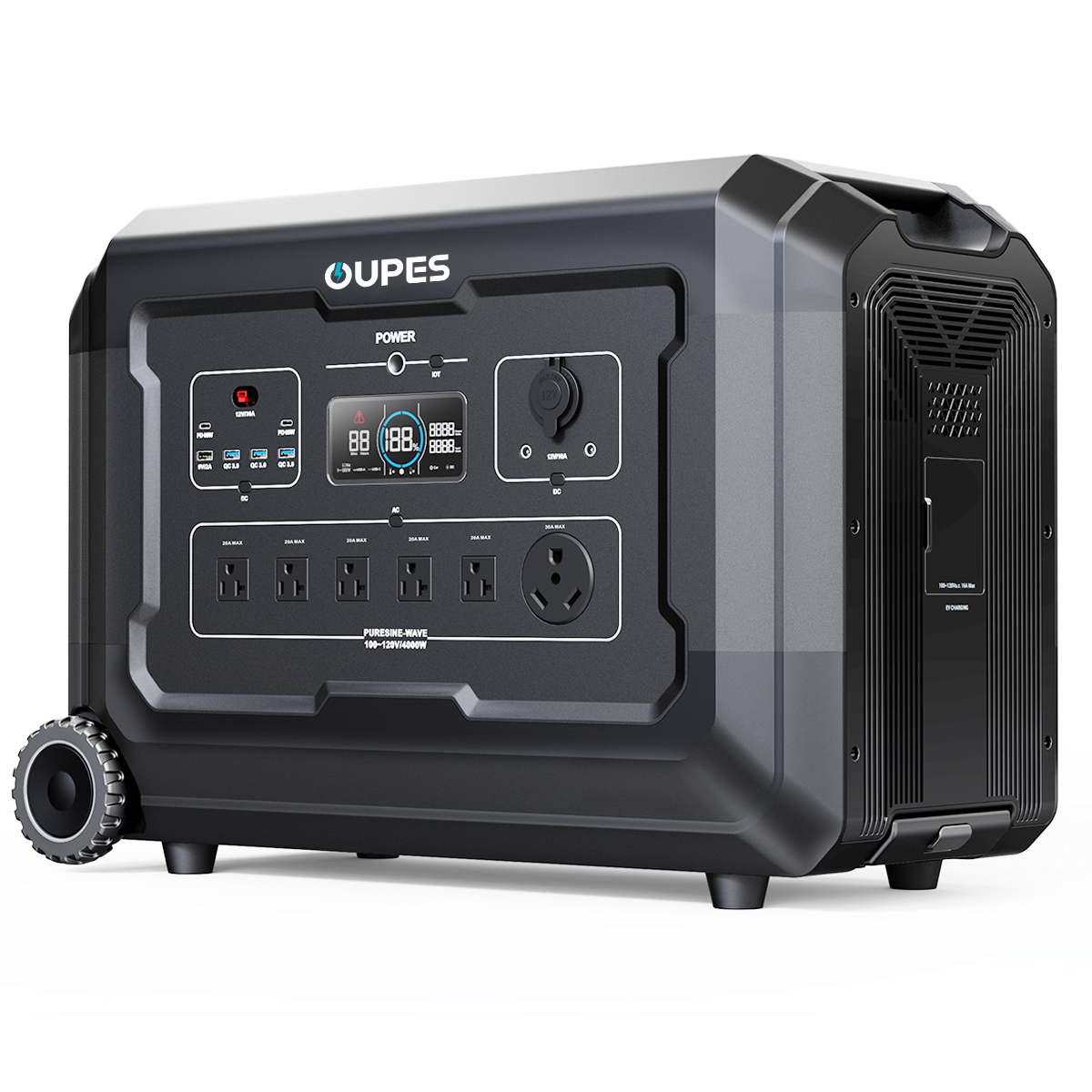
In the age of renewable energy, where self-sufficiency meets sustainability, the search for the best solar generator for home use has become more crucial than ever. Households are no longer just looking for a backup power solution; they seek reliability, efficiency, and seamless integration into their daily lives. But with a variety of options flooding the market, how do you determine which solar generator truly stands out?
Beyond mere wattage and battery capacity, the ideal home solar generator must strike a balance between power output, expandability, and durability. Whether for emergencies, off-grid living, or simply reducing dependence on the traditional electrical grid, choosing the right generator is an investment in energy independence. Let’s explore what makes an exceptional solar generator and why OUPES has set a new standard in home energy solutions.
Understanding the Key Features of a Home Solar Generator
Not all solar generators are created equal, and when it comes to powering an entire household, the specifications truly matter. The best home solar generator must meet a set of fundamental criteria—high-capacity battery storage, efficient solar charging capabilities, multiple output ports, and intelligent power management.
Battery capacity serves as the backbone of any solar generator. Measured in watt-hours (Wh), it determines how long your essential appliances can stay powered. A small generator may handle lights and phones, but running refrigerators, medical equipment, or even heating and cooling systems requires something far more substantial. Opting for a generator with expandable battery capabilities ensures a scalable energy solution that adapts to your evolving power needs.
Equally important is the inverter capacity, which dictates how much power can be drawn at once. A high-quality pure sine wave inverter is essential for running sensitive electronics smoothly, preventing damage or performance issues. Some generators offer split-phase or 240V options, ideal for whole-home applications.
Another critical factor is charging efficiency. A great solar generator isn’t just about storing energy—it’s about replenishing it quickly. Fast solar charging capabilities ensure that, even after a power outage, you won’t have to wait days to restore your energy supply. The best models support multiple charging inputs, allowing you to harness solar energy while simultaneously topping up via an AC outlet or even a car port.
Why OUPES Solar Generators Lead the Market
When it comes to reliability and innovation, OUPES has established itself as a leader in the solar generator industry. Designed with cutting-edge lithium battery technology, OUPES solar generators offer superior energy efficiency, longer lifespans, and unparalleled performance under demanding conditions.
One of the standout features of OUPES solar generators is their modular battery expansion. Unlike traditional solar generators with fixed capacities, OUPES models allow users to increase their power reserves by adding extra battery packs. This level of scalability ensures that households can start with a base unit and expand as their energy needs grow.
Another game-changing feature is the advanced MPPT (Maximum Power Point Tracking) charge controller, which optimizes solar panel input to extract maximum efficiency. This technology ensures that even in less-than-ideal sunlight conditions, OUPES generators charge faster and more efficiently than conventional models.
Additionally, OUPES generators are built with robust output versatility. Whether powering essential household appliances, charging electric vehicles, or running high-demand tools, multiple AC, DC, and USB ports provide seamless connectivity. Smart energy management prevents overloads, distributing power intelligently to ensure smooth operation across multiple devices.
How to Choose the Right OUPES Solar Generator for Your Home
Selecting the best OUPES solar generator depends on several factors, including household energy consumption, intended use, and backup duration requirements. Households looking for basic emergency backup might prioritize portability and ease of use, while those aiming for a long-term off-grid setup will require a high-capacity system with expandable batteries.
First, consider your energy consumption. Calculate the combined wattage of all essential devices and appliances you need to power. Refrigerators, medical devices, WiFi routers, and lighting systems typically require a mid-range capacity generator, while air conditioners and electric heating units demand significantly more power.
Next, assess the solar input capacity. A powerful generator is only as good as its ability to recharge efficiently. Choosing an OUPES model that supports high-wattage solar panels ensures a continuous power supply even in prolonged outages.
Finally, think about future-proofing. Energy needs evolve over time, so opting for a model with expandable battery options provides long-term flexibility. OUPES solar generators offer scalable solutions, making them a wise investment for those looking to gradually transition toward complete energy independence.
The Future of Home Energy with Solar Generators
As the world moves toward sustainable energy solutions, home solar generators are playing an increasingly vital role in ensuring reliable, off-grid power. Whether facing unexpected blackouts or seeking to reduce reliance on fossil fuels, a high-quality solar generator provides the peace of mind that electricity is always within reach.
OUPES solar generators stand at the forefront of this revolution, offering homeowners a blend of cutting-edge technology, efficiency, and scalability. By choosing the right model, households can enjoy uninterrupted power, reduced electricity costs, and a cleaner energy footprint.
For those looking to invest in a top-tier solar generator, OUPES delivers an unmatched combination of innovation and reliability. It’s not just about having backup power—it’s about redefining energy independence and embracing a future where sustainable power is accessible to all.




























